Horses have long been valued for their strength and beauty, but did you know they also make remarkable companions for emotional support? Their gentle nature, sensitivity to human emotions, and ability to form deep bonds make horses ideal for therapy. Let’s explore some specific horse breeds known for their therapeutic qualities and how they can provide emotional comfort and support.
1. The Unique Bond Between Humans and Horses
The connection between humans and horses goes back centuries. Horses are highly intuitive animals, often sensing and reflecting human emotions. This sensitivity allows them to connect deeply with people, making them powerful companions for those seeking emotional support. For many, simply being in the presence of a horse can bring a sense of peace and calm, providing a natural relief from stress and anxiety.
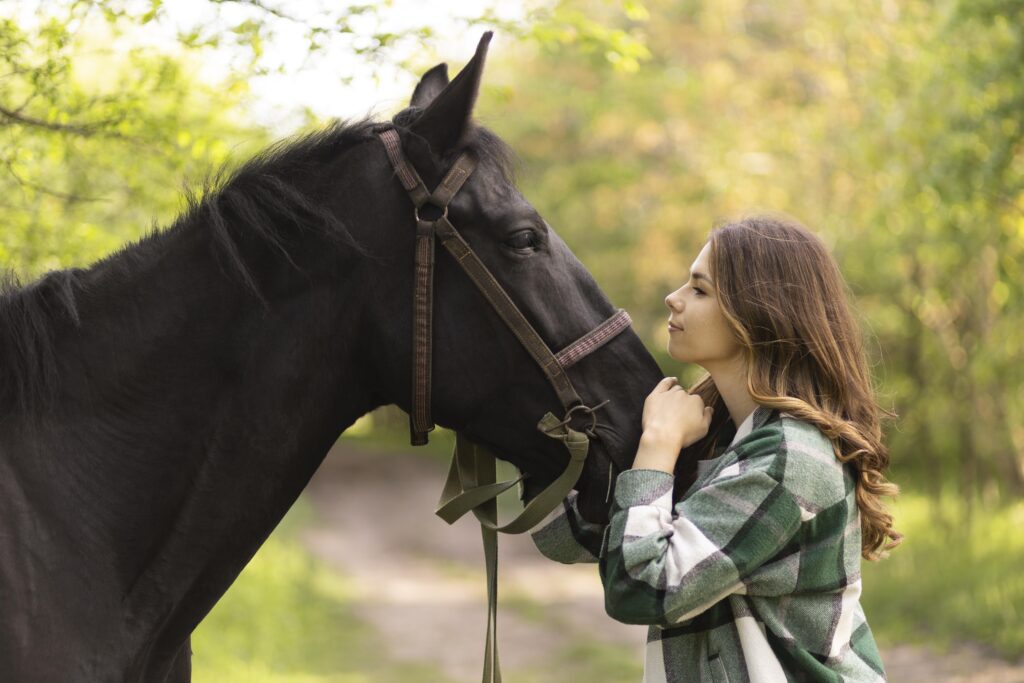
2. Key Qualities That Make Horses Ideal for Therapy
Not all animals are suited for therapeutic work, but horses possess several key traits that make them exceptional. Their sensitivity to body language and emotions means they can respond to human needs in real time. Horses are also known for their patience and intelligence, allowing them to engage calmly and thoughtfully with their handlers. Whether someone needs a quiet presence or a more interactive experience, horses can adapt to provide exactly the support needed.
3. Quarter Horses: Gentle and Patient Companions
Quarter Horses are known for their friendly, patient nature. These horses are reliable and gentle, often forming strong bonds with their human companions. This breed’s calm temperament makes it a popular choice for therapy, especially for those who benefit from a steady, grounding presence. For people dealing with anxiety or stress, Quarter Horses offer a peaceful, supportive companionship that feels safe and reassuring.
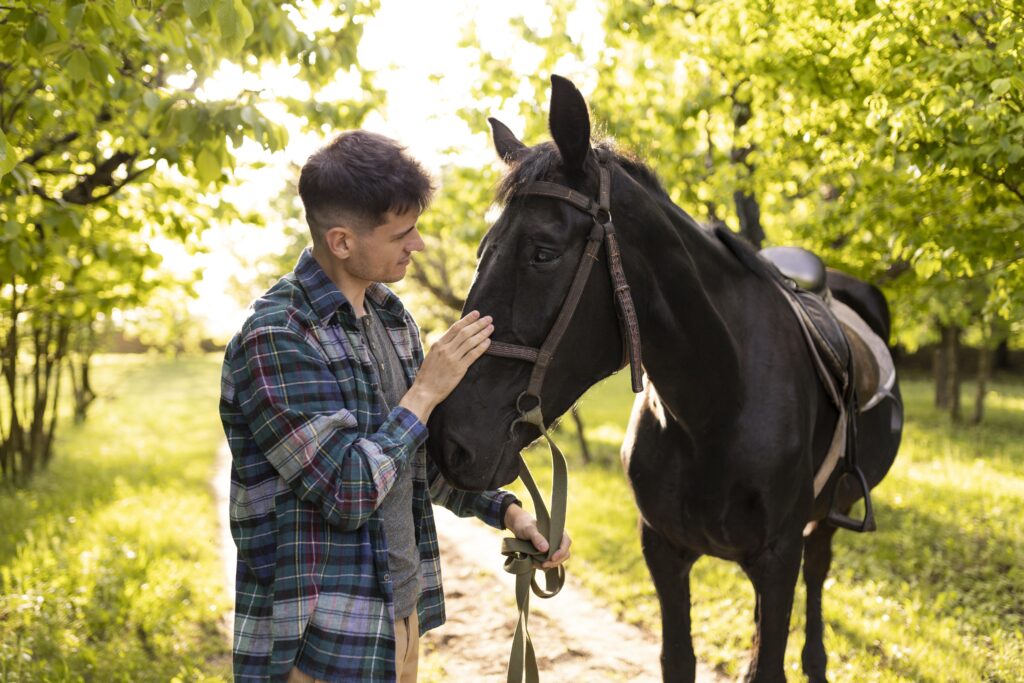
4. Friesian Horses: Majestic and Emotionally Attuned
With their striking appearance and calm demeanor, Friesian horses are a favorite among therapy animals. Known for their emotional attunement, Friesians often respond sensitively to their handlers’ emotions. Their majestic yet gentle presence can provide a sense of comfort and security, making them particularly effective for individuals experiencing emotional challenges. The calm, patient nature of a Friesian horse helps foster a healing environment, making these horses well-suited for therapeutic connections.
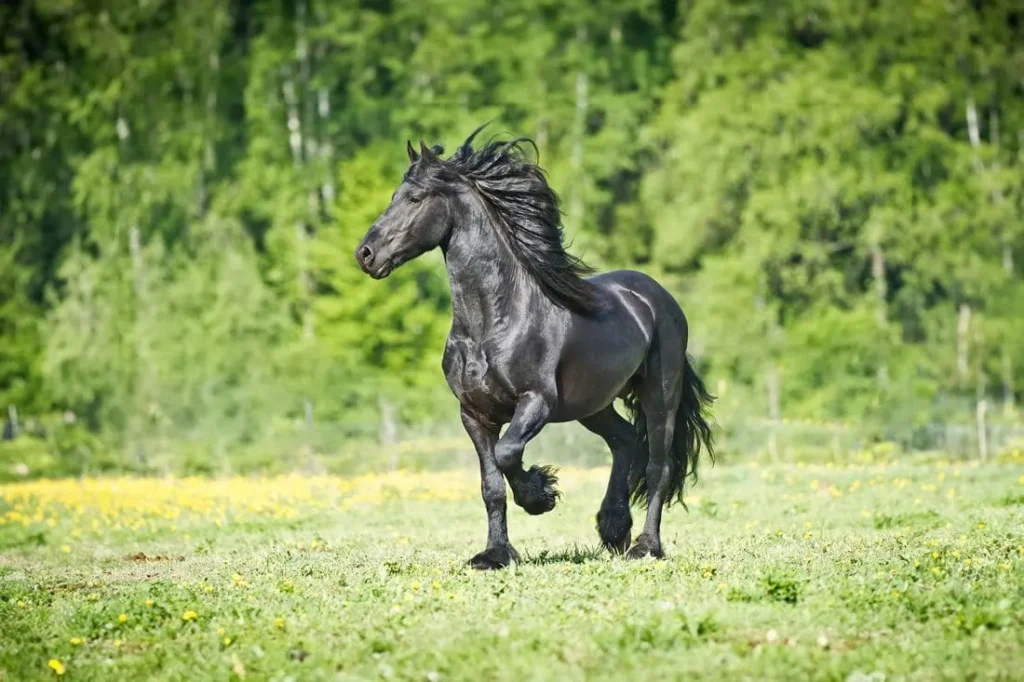
5. Clydesdale Horses: Strong Yet Gentle Giants
Often recognized by their impressive size and strength, Clydesdales are also known for their gentle nature. These “gentle giants” provide a comforting presence, offering both physical stability and emotional reassurance. Clydesdales can be especially helpful for people who need a sense of safety and support. Their calm temperament and reliable nature make them ideal for emotional support, providing a strong, stable companion that people can lean on.
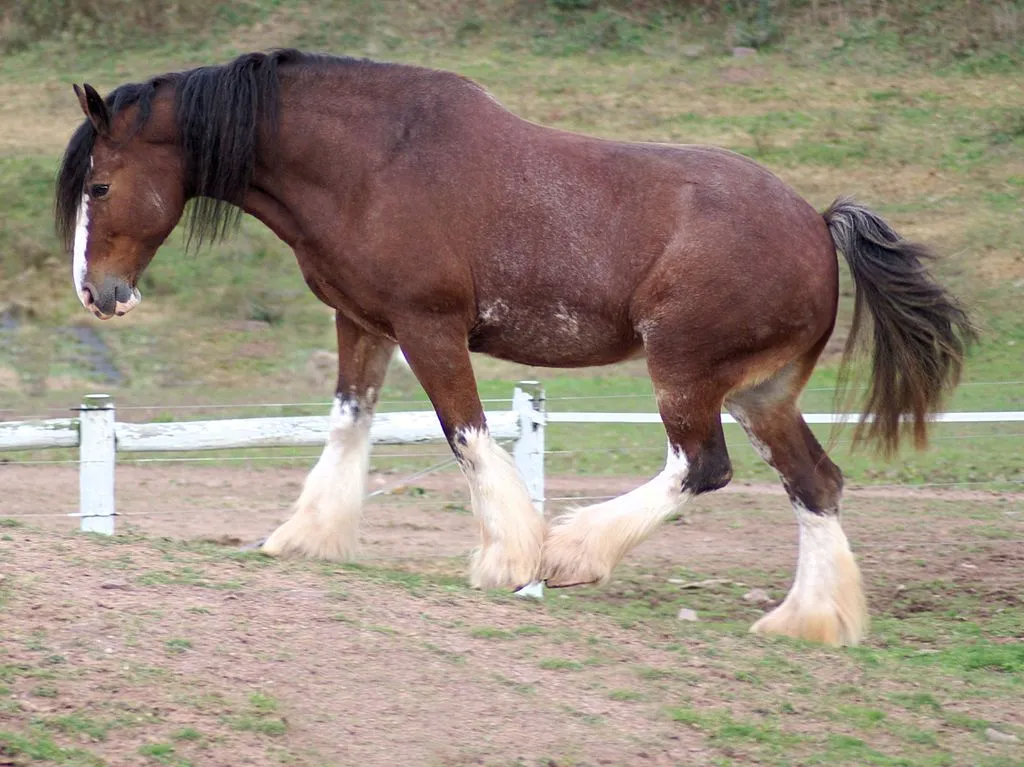
6. Miniature Horses: Compact, Friendly Therapy Animals
For those who might feel intimidated by larger horses, Miniature Horses offer a friendly and approachable alternative. Despite their small size, Miniature Horses are full of personality and charm. Their compact nature allows them to be used in settings where larger horses might not be suitable, such as indoors or in smaller therapy spaces. Miniature Horses are known to form strong bonds with people, making them excellent companions for children and adults alike who need gentle, comforting support.
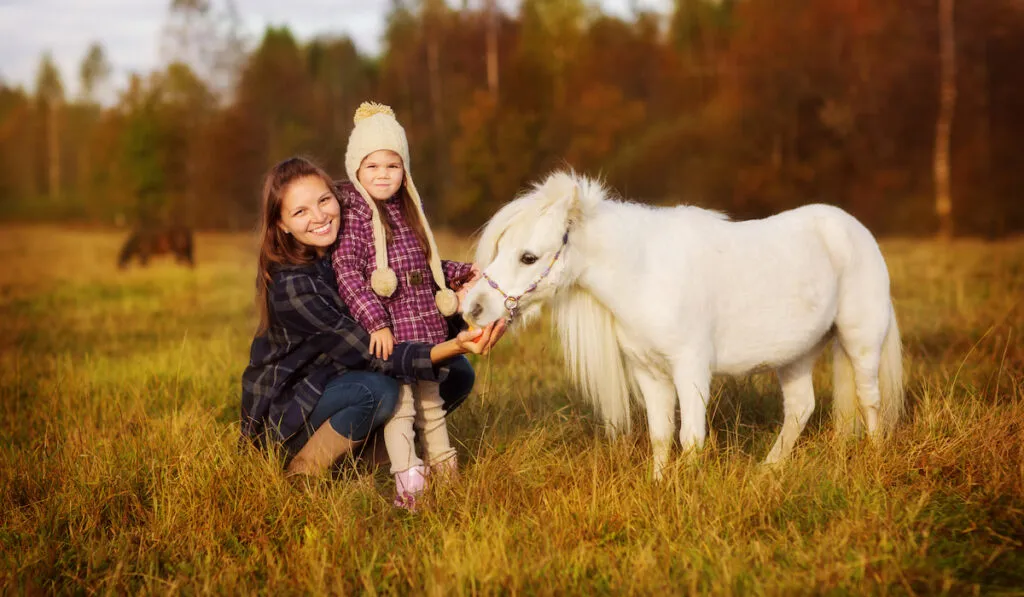
7. Choosing the Right Horse Breed for Your Therapeutic Needs
When it comes to choosing a therapy horse, it’s essential to consider your specific needs. Are you looking for a calm, grounding presence? A Friesian or Clydesdale might be ideal. Do you prefer a more approachable and smaller companion? A Miniature Horse could be a perfect fit. Think about the type of support you need and how much space you have, as different breeds have unique characteristics and requirements. Finding the right match can make a significant difference in your therapy experience.
Conclusion: Finding Support and Healing Through Equine Companionship
Horses come in all shapes and sizes, each offering unique therapeutic benefits. From the friendly nature of Quarter Horses to the majestic calm of Friesians, these animals provide comfort, companionship, and a deep sense of connection. If you’re seeking emotional support, exploring the bond with a therapy horse could be a healing step. Embrace the journey of equine companionship and discover the peace and healing that horses can bring.

